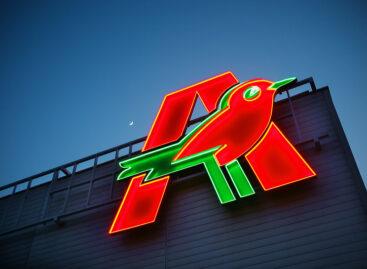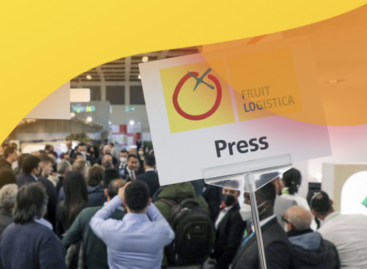(HU) Ott voltunk a (játék)szeren (1. rész)
Between 19 and 23 September, the Trade Playground was full: Trade magazine organised its Business Days conference for the 15th time. Almost 900 decision-makers gathered from the HoReCa and FMCG sectors in Hotel Pelion in Tapolca, to discuss the hottest topics of the trade, from the war through inflation to the price cap.
Written by Tamács Ipacs, László Szalai, Klára Budai
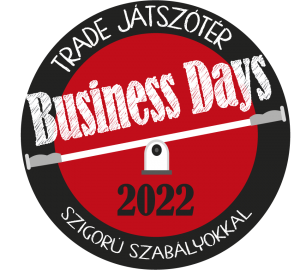

Emília Krug
communication specialist
Communication specialist Emília Krug was the moderator, and the first speaker of the day was Annamária Földes, director of client development and customer experience at Ipsos.

Zsuzsanna Hermann
CEO and editor-in-chief
Trade magazin
Zsuzsanna Hermann, CEO and editor-in-chief of Trade magazine opened the conference on 19 September.
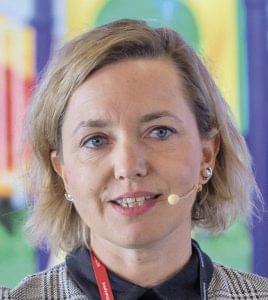
Annamária Földes
director of client development and customer experience
Ipsos
She gave an overview of the global economic background, and introduced the results of market research surveys on the inflation expectations of Hungarian consumers, and how much they have spent on holidays and eating in restaurants.

Nearly 900 guests followed with enthusiasm the five days of events on the”Trade- playground”
Difficult years are ahead of us

László Kovács
president
MVI
László Kovács, president of the Guild of Hungarian Restaurateurs (MVI) revealed that even though there were 3,400 fewer hospitality units and much fewer workers than in 2019, the sector produced nearly the same results in 2022. The price index elevated by 15% percent in hospitality since early 2021. MVI’s president analysed the problems arising from the workforce shortage, and spoke about possible solutions such as atypical employment.
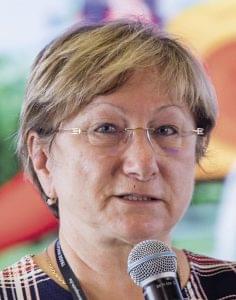
Anna Zoltai
president
KÖZSZÖV
Anna Zoltai, president of the National Association of Public Sector Catering Service Providers (KÖZSZÖV) gave a presentation about the state of play in mass catering. She told that 1.5 million people use the service, mostly children. The biggest problem is inflation, rising salaries, energy and cooking ingredient prices. State funding is growing, but it can’t compensate for the inflation.
Health campaigns
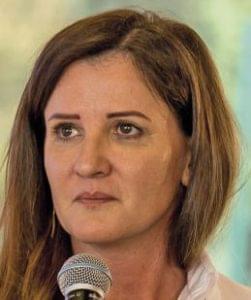
Annamária Riedl
head of communication and
coordination
OGYÉI
Annamária Riedl, head of communication and coordination at the National Institute of Pharmacy and Nutrition (OGYÉI), and head of the NETA Programme Office, talked about public health programmes funded from the income from the public health product tax (NETA) (maximum 10% of the contributions of companies is used for this purpose). She introduced the Healthy Children programme, the Aqua Challenge campaign, and spoke about the new projects they are planning.
We are looking for solutions!
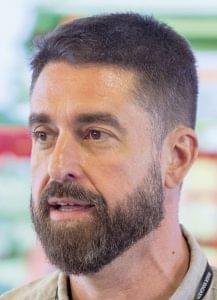
Gábor Tolnai
head of marketing insight division
Kantar Hoffmann
In the afternoon Gábor Tolnai, head of marketing insight division at Kantar Hoffmann presented the results of a HoReCa research, as part of which they interviewed 100 restaurant owners and managers. Mr Tolnai also talked about the strategies of owners for coping with the challenges.
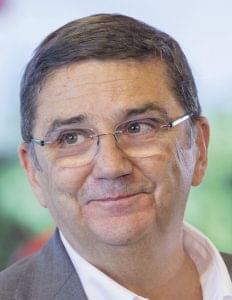
Dr. Lajos Böröcz
general secretary
VIMOSZ
Dr Lajos Böröcz, general secretary of the National Association of Tourism and Hospitality Employers (VIMOSZ) analysed the current challenges in the tourism and hospitality sector, and how these can be managed. He mentioned that the drop in turnover isn’t only characteristic of Hungary, as the most developed economies of Europe are facing the same problem. In his view the trade must concentrate on the workforce problem right now.
A closer look

Károly Gerendai
owner
Rumour and Costes
In the day’s first roundtable discussion, the topic was the situation of restaurants.
Károly Gerendai, the owner of restaurants Rumour and Costes, shared his concerns that many restaurants will “develop” in the direction of laying off workers and using cheaper ingredients, because they have no other choice but to cut costs if they want to survive. In his view the trade can’t count on much help from the state.

László Kovács
president
MVI
MVI president and owner of La Fiesta Party Service László Kovács expressed his view that each restaurant has to find their own means for survival. They need to replan and adapt to changes regularly. The president believes many restaurants will close for good, but this also means that more workers will be available for other restaurants to choose from.

Rudolf Semsei
owner
VakVarjú restaurants
and Budapest Party Service
Rudolf Semsei, the owner of VakVarjú restaurants and Budapest Party Service calculates with a decline in the purchasing power of Hungarian consumers. He reckons that in this situation those restaurants are better off which rely on foreign guests.
Rooting for the trade
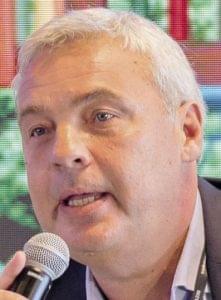
Ákos Bősze
HoReCa
business development executive
METRO
Ákos Bősze, business development executive of HoReCa at METRO pointed it out that generation Z is now very important in the restaurant business. Research shows that they have a lot of money to spend, and on average they spend 16 hours a week in bars, cafés and restaurants. Places can only stay alive in the present situation if they invest in development.

Tamás Szendrő
managing director
Edenred
Tamás Szendrő, general manager of Edenred and co-owner of a bar in Budapest shared his own experiences: in spite of the problems, certain segments of the hospitality sector do very well. As the head of Edenred he has a bit worse experiences – a large part of bar and restaurant owners don’t think progressively, and they operate without serious planning.
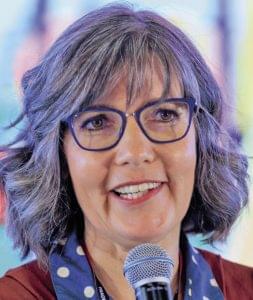
Réka Szöllősi
food policy analyst
elelmiszervilag.hu
In the second half of the afternoon Réka Szöllősi, food policy analyst of elelmiszervilag.hu gave a presentation, in which she revealed that even the Covid pandemic couldn’t transform food consumption trends – even though some of them speeded up or slowed down, and of course new trends occurred, too. She mentioned that several new EU regulations will have an impact on the work of food companies.
Pioneers
On Monday the programme ended with a roundtable discussion for the representatives of product manufacturers, retailers and restaurant owners and managers. The topic was the diminishing role of meat, and the flexitarian and plant-based diets.
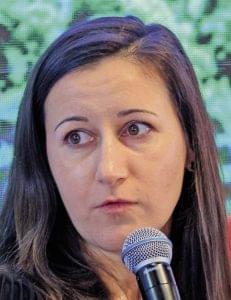
Enikő Boglárka Tóth
commercial leader
Nestlé Professional
Enikő Boglárka Tóth, commercial leader of Nestlé Professional said it was a good decision to roll out their meat alternatives in February 2020, even more so because the pandemic strengthened the health trend in eating too.
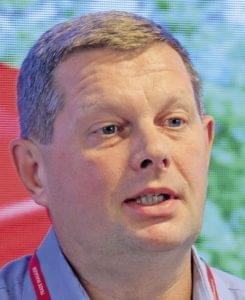
Csaba Burján
managing director
Unilever Food Solutions
Csaba Burján, managing director of Unilever Food Solutions opined that a plant-based diet is the only realistic answer to the current global sustainability problems. The company’s meat-free meals look and taste just like their original meat variants.

Ákos Bősze
HoReCa
business development executive
METRO
Ákos Bősze, HoReCa business development executive of METRO explained that hospitality can’t separate the different needs of vegetarians and flexitarians yet, so METRO is working with chefs now to develop the right kind of restaurant meals.
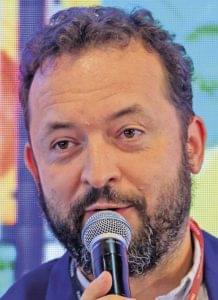
László Ruprecht
president
SVÉT
László Ruprecht, president of the Stylish Restaurants in the Country (SVÉT) association represents a group of restaurant owners that concentrate on cooking ingredients. The quality of these isn’t a simple issue: at the moment SVÉT members can work with first- or second-generation producers only. Guests are more and more interested in where the ingredients come from.
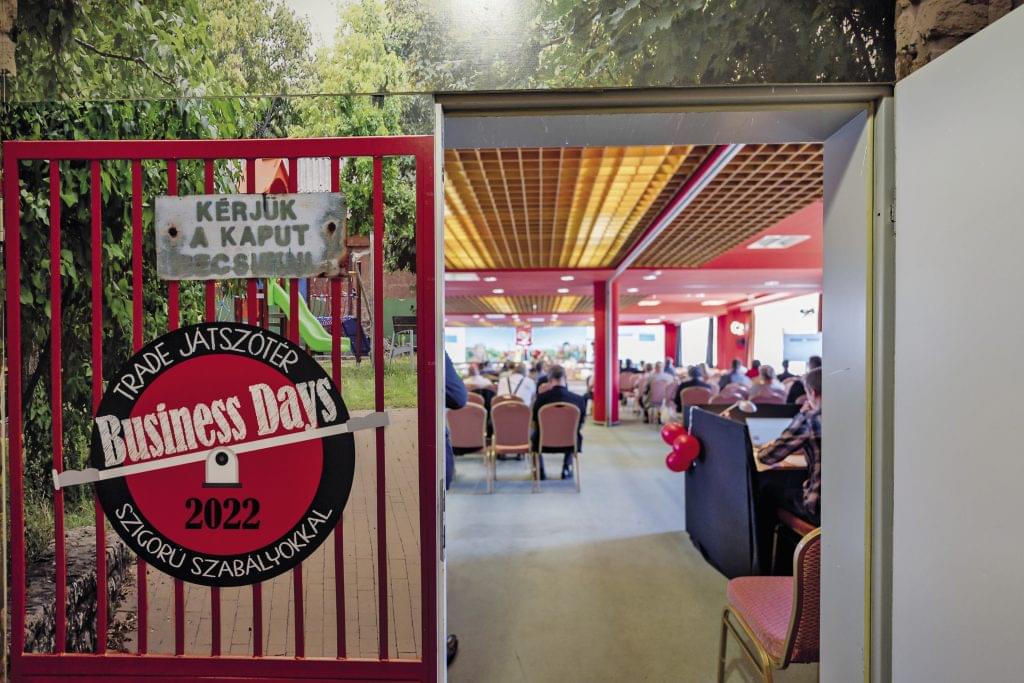
Hotel Pelion in Tapolca has been the backdrop for Business Days for 15 years now
On Tuesday, the second day of the conference, Emília Krug was the moderator just like on the first day.
The day started off with Minister of Agriculture Dr István Nagy – chief patron of the Business Days – speaking to the conference participants.
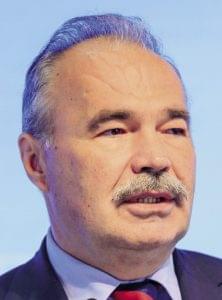
Dr. István Nagy
Minister of Agriculture
He told that the government continuously monitors and analyses what is happening in the economy, and they intervene and help if necessary. He mentioned that last year they increased the national co-financing of the funding from the Common Agricultural Policy (CAP) from 17.5% to 80%, and this way businesses could apply for financing modernisation projects from a budget of HUF 4,265bn.
After his speech the minister answered questions from the audience, and then presented a certificate to Trade magazin editor-in-chief Zsuzsanna Hermann, thanking the efforts of the 15-year-old Business Days conference for bringing the actors of the FMCG sector together.
Next on the agenda was presenting the Retail Award of Excellence for Hungarian Products 2022.
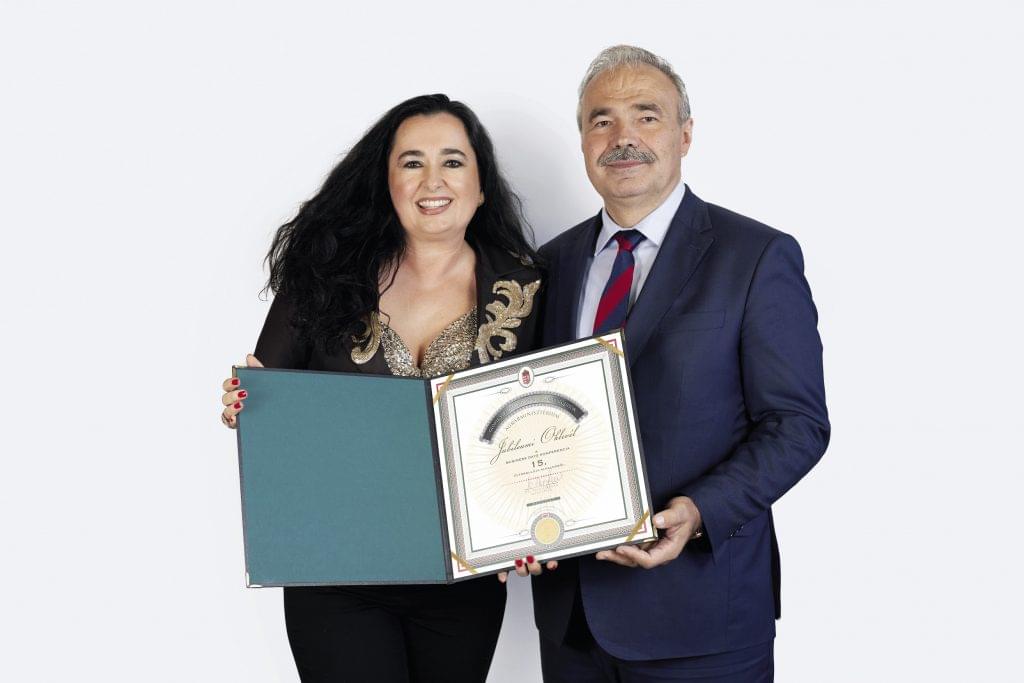
It was a great honour for us that Dr. István Nagy, Minister of Agriculture, presented a jubilee certificate to Zsuzsanna Hermann, chief organiser of the event, for her work in the past 15 years as a result of which the trade has been united
Adaptation is a must
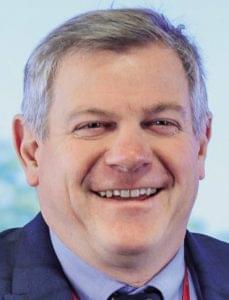
Ákos Kozák
co-founder
Equilibrium Institute
After the award ceremony Ákos Kozák, co-founder of the Equilibrium Institute analysed Hungary’s economic prospects in the medium and long term, and then presented the latest forecast of the institute. According to this, the GDP will only grow by 1.1% in 2023, the real consumption of households will drop 1.9%, and the inflation is likely to be around 13.3% next year. Mr Kozák added that households and companies are stronger now than during the 2008 financial crisis.

Anita Mekler
partner
PricewaterhouseCoopers
Anita Mekler, a partner of PricewaterhouseCoopers (PwC) talked about the changes in taxation and the challenges in the supply chain, to which business must adapt. She revealed that the government collected about HUF 17,500bn in taxes last year, and the majority of this sum didn’t come from income and revenue tax contributions, but from the taxes on consumption.
She explained about the planned global minimum tax– which Hungary had supported first, but later the government changed its mind – that even if we say no, the tax will be introduced in other European Union countries, and then it will apply to the Hungarian subsidiaries of companies based in the EU.
Everything is changing

Tamás Éder
president
FÉSZ
Tamás Éder, president of the Federation of Responsible Food Manufacturers (FÉSZ) was the next presenter, who revealed that last year’s FMCG sales growth was smaller than the growth rate of sales by the Hungarian food industry.
The proportion of Hungarian products on store shelves increased. Agricultural produce became more expensive, but the food industry was unable to sell products to retailers at higher prices.

Attila Vörös
managing director
FÉSZ
A roundtable discussion followed, where Attila Vörös, managing director of FÉSZ revealed that some of their members are pushing forward and keep investing, while others expect to spend all of their profits on energy bills.
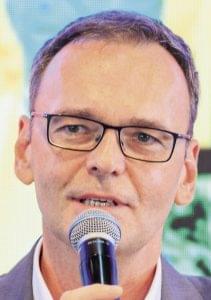
Péter Szautner
managing director
FrieslandCampina Hungária
Péter Szautner, managing director of FrieslandCampina Hungária Zrt. reckons that flexibility and the ability to adapt are the most useful characteristics right now. He believes that consumers will buy food much more consciously in the future, carefully measuring what they really need.

György Sóskuti
deputy CEO
Bonafarm Group
György Sóskuti, corporate sales and marketing director/deputy CEO of Bonafarm Group called attention to the fact that every company has as big a room for manoeuvre as its organisational structure and product portfolio give to them.
In Bonafarm’s case the group can react by changing the proportions of branded products vs. private labels, export vs. domestic sales, and modifying retail channel preferences.
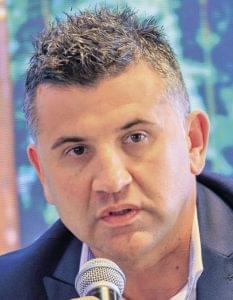
Gergely Bálint
corporate sales director
Nestlé
Gergely Bálint, corporate sales director of Nestlé opined that some things are similar to those of the 2008 recession, but this time different factors triggered different price movements, and consumer reactions may also turn out to be different.
The price flexibility of products is essential in the present situation.
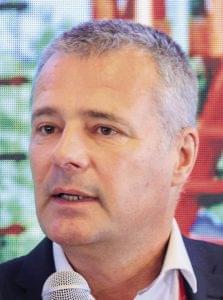
Dr. Csaba Bódi
managing director
HIPP
Dr Csaba Bódi, managing director of HIPP shared his view that Hungarian firms should focus on international markets, calculating with the trends prevailing there. As for investment, the main priority is obviously energy-saving projects.
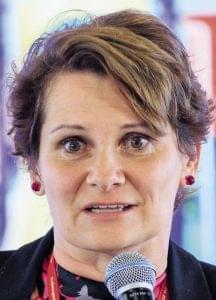
Emese Antal
scientific director
TÉT Platform Association
After the roundtable discussion there was another presentation before lunch: Emese Antal, scientific director of the Nutrition, Lifestyle and Exercise (TÉT) Platform Association spoke about the battle of different nutrition labelling systems.
Will the dominos fall?
Wholesalers were discussing the most important topics in the first half of the afternoon.

Csaba Kanizsai Tóth
managing director
FÁN Group
Csaba Kanizsai Tóth, managing director of FÁN Group expects the situation to become really bad in the wholesale sector from the second half of the autumn.
FÁN Group helps partners with professional assistance and services, and they try to manage their 115-product private label portfolio even better than before.
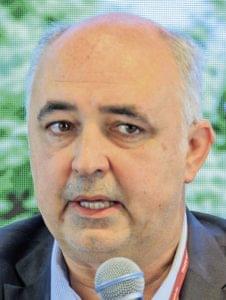
Sándor Kovács
head of sales
METRO
Sándor Kovács, head of sales at METRO reported that many of their independent hospitality partners were forced to close or are about to call it a day, due to the rapidly rising energy costs. In retail METRO witnesses the same trend in small villages. METRO doesn’t plan to narrow down its product selection.

Dr. Richárd Andrejszki
CEO
Chef Market
Dr Richárd Andrejszki, CEO of Chef Market said: if there will be trouble, it will be a big, state level problem. In this case the government won’t be able to help the different sectors, the dominos will start to fall and it will take years to recover after that.
New dimensions of cooperation
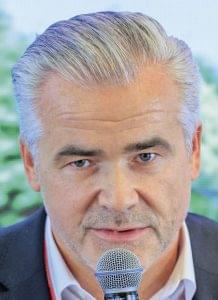
László Varga
business unit director of fresh product buying
Auchan
Suppliers followed next in the programme, and László Varga, business unit director of fresh product buying at Auchan expressed his opinion that in the long run, the price cap on certain products will lead to distortions on the whole product path. Today, when it isn’t only the market trends that regulate the sector, retailers need to review the management of the full product path. Retailers, manufacturers and farmers have to understand the motivations of shoppers, and think together along the lines of these.
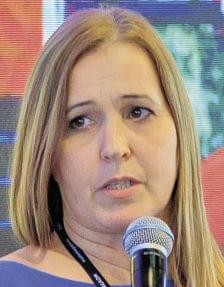
Éva Szimeiszter
head of country division buying
Tesco
Éva Szimeiszter, head of country division buying at Tesco explained: the biggest problem with the price cap is that it generates unusually high sales, which can lead to product shortages in the given categories. Tesco tries to engage in even closer cooperation with supplier partners – last year they launched a transparency and joint planning project with 22 private label manufacturers (from these 3 are Hungarian).
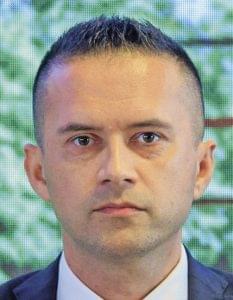
Zoltán Noszlopy
managing director
PartnerLog
Zoltán Noszlopy, managing director of PartnerLog said: in the future price negotiations will also be about whether there will be enough products to put on the shelves. He added that the price difference between “A” and “B” brands is diminishing, as the big players can finance the price positions of their major brands more easily than small and medium-sized companies can do it with their brands.
Local allocations
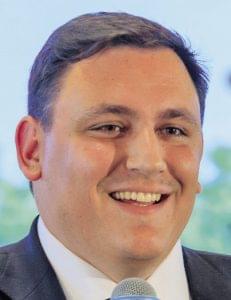
Andreas Christou
managing director
RetailZoom
Towards the end of the day Andreas Christou, managing director of RetailZoom gave a presentation, analysing the state of play in the Hungarian-owned retail chain and tobacco shop channels.

Lívia Jeszenszki
managing director
Reál
In the first roundtable discussion Lívia Jeszenszki, managing director of Reál admitted that times are hard, but there is no dramatic situation for Reál stores yet. She mentioned pricing as a key area in the future. Besides reducing energy consumption, Reál also sees great opportunities in optimising the assortment and centralising product supply.
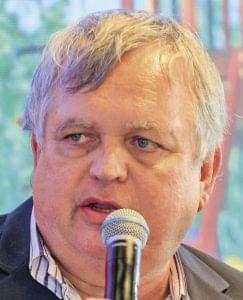
Zsolt Gyelán
deputy president
CBA
Zsolt Gyelán, deputy president of CBA explained that the main rivals aren’t hypermarkets, but discount supermarkets; they are close to where people live, and they are so well-organised that it is hard for small shops to compete with them.

Géza Tóth
CEO
CO-OP Hungary
Géza Tóth, CEO of CO-OP Hungary Zrt. told that Coop has always been strong in localisation, and their objective is being present with shops in as many places as before. They receive a growing number of offers from independent shops to take them over – unfortunately the majority of these stores aren’t saveable.
Reacting early…

Zoltán Tóth
CEO
DigInStore
Tobacco shops entered the spotlight next, and Zoltán Tóth, founder, co-owner and CEO of DigInStore Zrt. (they operate Dohányboltellátó Kft. and TrafikTV) broke the news that tobacco shops already have a 15-20% share in the sales revenue generated by the soft drink and alcoholic drink categories. A well-managed tobacco shop operates with a 10.6% profit margin on tobacco products, but selling FMCG products can be much more profitable for them.

György Galántai
commercial director
international key account director
HELL Energy
György Galántai, commercial director and international key account director of HELL Energy spoke about their good positions in tobacco shops, which is the result of reacting early to the opportunities created by this new retail channel. They are trying to be present with the full product portfolio, so not only energy drinks, but iced coffee, ice tea, fizzy and vitamin drinks are also present here.
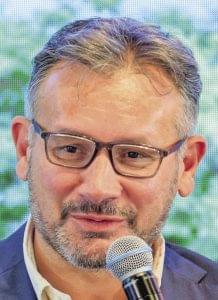
Tamás Vizi
special commercial partners manager
Philip Morris
Tamás Vizi, special commercial partners manager of Phillip Morris talked about new product categories being born in tobacco shops, and others reviving in this retail channel. The market leader company contributed to this trend by building up the category of smoke-free tobacco products.
Caps and minuses
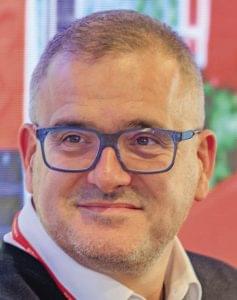
Dr. András Orosz
retail director
MOL
Tuesday ended with another roundtable discussion, this time for the representatives of petrol stations. Dr András Orosz, retail director of MOL stressed that it isn’t in Hungary’s interest to be the cheapest country, as neither petrol tourism nor intensified consumption can be managed in the long run – they can even lead to product shortages.

Sarolta Vecsey
mobility manager
Shell Hungary and
Slovenia
Sarolta Vecsey, mobility manager of Shell Hungary and Slovenia called attention to the fact that due to the price cap, volume sales have been much higher in the domestic market than last year. What is more, industrial buyers have already started purchasing diesel oil, to substitute natural gas in certain phases of production.
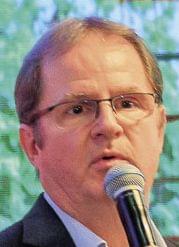
Tibor Balogh
CEO
OMV
Tibor Balogh, CEO of OMV also came across many new customers at petrol stations. As a motor fuel importer, OMV is struggling with hardships in sourcing and logistics. In the meantime, the company must pay the retail tax after the much higher, but actually loss-making sales. The CEO reckons that motor fuel importers had better calculate with what proportion of import they can remain operable. //

Once again, the performance of György Korda and Klári Balázs was a great success, followed by a poker party
Retail Award of Excellence for Hungarian Products 2022
Minister of Agriculture Dr István Nagy presented the awards to the winners of the Retail Award of Excellence for Hungarian Products 2022, together with the competition’s founders, Eszter Benedek, managing director of Hungarian Product Nonprofit Kft. and Zsuzsanna Hermann.
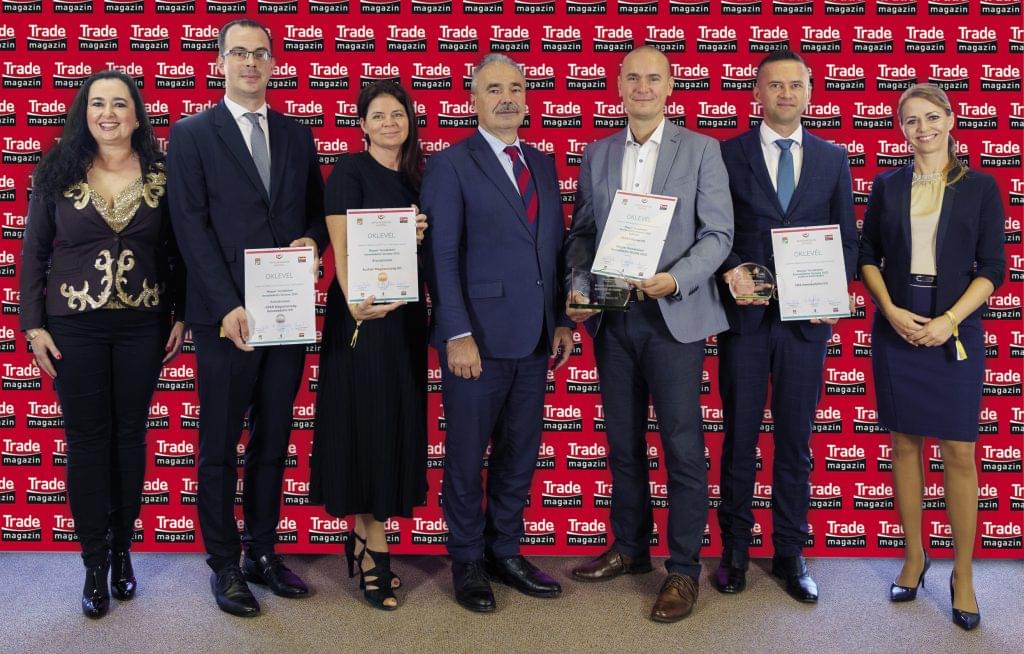
The winners of the 2022 Commercial Excellence Awards with the presenters. Congratulations!
This year SPAR won the bronze medal, the silver went to Auchan Magyarország Kft., and the winner was PENNY Market Kft. CBA Kereskedelmi Kft. went home with a special award. //
Children’s movie of the day (with an age limit): alive
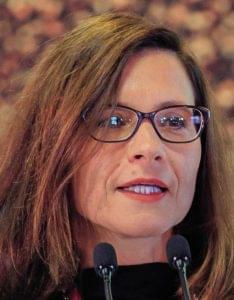
Szilvia Krizsó
moderator
On Wednesday Szilvia Krizsó took over the moderator’s task from Emília Krug.
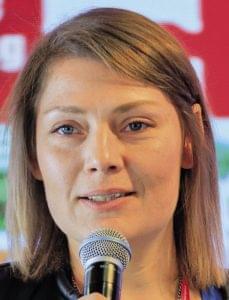
Júlia Dalmadi
food futurist
The first host of the day was food futurist Júlia Dalmadi. In her introduction she talked about the circular economy based business she had started last year, which was inspired by a decade of experience gathering about sustainable food production abroad.
For the Business Days Ms Dalmadi organised a virtual roundtable discussion, in the form of a Zoom conference, about food innovation as a global mission. She asked participants – members of the Climate Shapers community – what they are doing in their own ecosystems to establish human- and planet-friendly food systems.
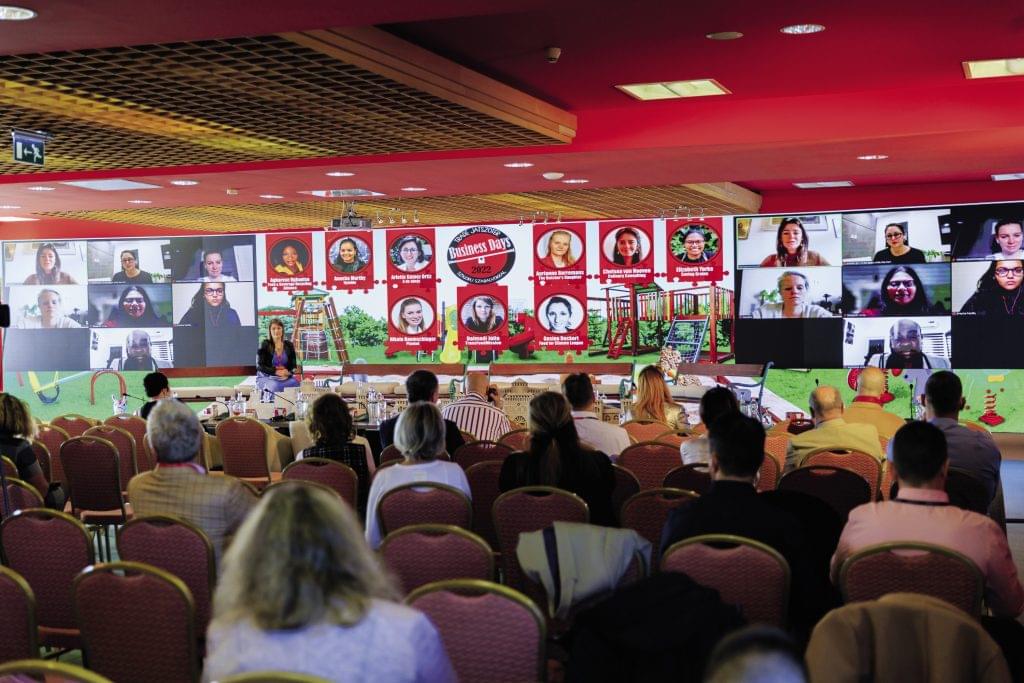
Participants of the virtual roundtable discussion have been members of the Climate Shapers community
Culinary consultant and brand developer Chelsea van Hooven spoke from Berlin. She highlighted the importance of having resistant local food systems. In her view such systems combine traditions with innovations. Strategy planner Arlette Gómez Ortiz resides in Mexico City. She is currently working on a project that seeks to keep some of the honey made in Mexico in the country – most of it is exported at the moment. Anusha Murthy is one of the founders of the Edible Issues collective. She lives in Bangalore, but spoke to the participants of the Business Days conference from San Francisco. With a start-up called Nymbel, they are developing a robot that makes home cooking more comfortable.
Nikola Baumschlager, global project manager of Planted spoke from Zürich. She works at Europe’s fastest-growing meat alternatives start-up. Food industry consultant Aurianne Borremans checked in from Brussels. She works with companies that have a plant-based food portfolio, and she is the founder of The Butcher’s Daughter (La Fille du Boucher) brand. Elizabeth Yorke, the founder of Saving Grains and project manager of Food Forward India, also joined the conference from Bangalore. She is processing byproducts from breweries to make upcycled products. Last but not least, sustainability expert Agharese Oghanise spoke from Lagos. She is researching how to use sustainable and eco-friendly food packaging, and what the best way is to transport food.
The next programme of the day was announcing the results of the Symbol of Sustainability 2022 competition. President of the jury Zsuzsanna Hermann presented the awards to the winners.
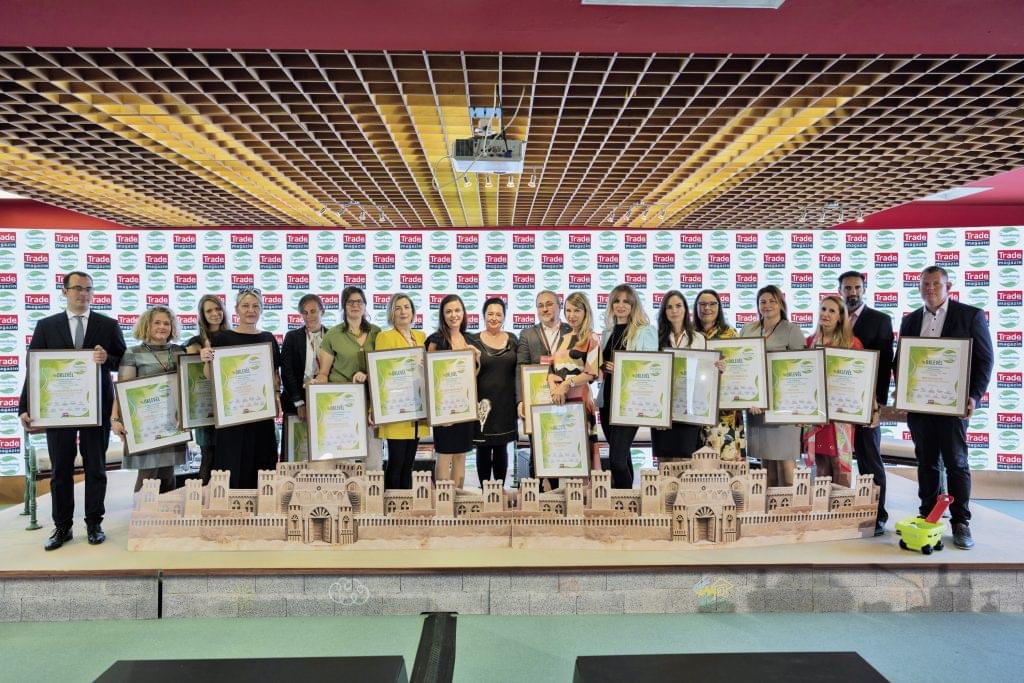
Winners of the Symbol of Sustainability 2022 competition
Plans and targets
After the award ceremony another roundtable discussion followed, with the involvement of sustainability-focused trade organisations.
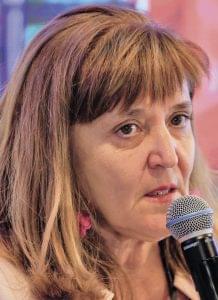
Irén Márta
managing director
BCSDH
Irén Márta, managing director of the Business Council for Sustainable Development (BCSD) shared the results of their recent survey on the sustainability efforts of companies. She told that members made great progress in their climate protection measures in the last twelve months.

Gergely Hankó
managing director
KSZGYSZ
Gergely Hankó, managing director of the Hungarian Association of Environmental Enterprises (KSZGYSZ) talked about selective waste collection, and how much Hungary developed in the last 15 years in waste collection and processing. In his view the global situation is really bad, as 17% of the generated waste ends up in nature.
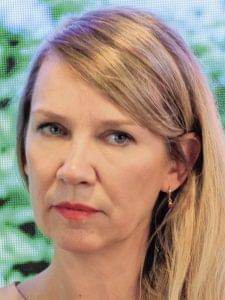
Judit Szalóky Tóth
public affairs and sustainability manager
The Coca-Cola Company
Judit Szalóky Tóth, public affairs and sustainability manager of The Coca-Cola Company and vice president of the Hungarian Marketing Association’ Green Chapter told: they are dedicated to making 100% of the company’s drink packagings recyclable by 2025 globally. This target has already been reached in the Hungarian market.

Eszter Horváth-Halmai
head of corporate fundraising
Hungarian Food Bank Association
Eszter Horváth-Halmai, head of corporate fundraising at the Hungarian Food Bank Association talked about food waste. She explained that there are four sectors where food can be saved, and the association has been active in two of these for 17 years. Last year they saved 8,000 tonnes of food, mainly from grocery stores.
In the spirit of sustainability
The morning programme came to an end with a roundtable discussion about sustainability projects, food waste, regulations and long-term strategies, where the representatives of retailers and suppliers exchanged their views.
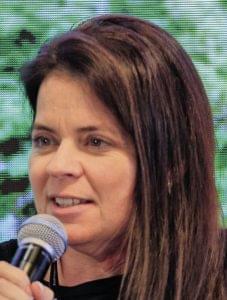
Ildikó Balázs
head of corporate affairs
Auchan
Ildikó Balázs, co-president of the National Trade Association (OKSZ) and head of corporate affairs at Auchan pointed it out: in the retail sector it is the individual responsibility of every company to reduce its energy consumption. OKSZ and its member companies are looking for ways to react to the new conditions quickly and effectively.
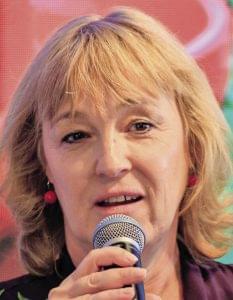
Nóra Hevesi
head of communications and campaigns
Tesco
Nóra Hevesi, head of communications and campaigns at Tesco mentioned in connection with plastic saving: by 2025 Tesco will replace the packaging of all private label products with recyclable and/or recycled designs.
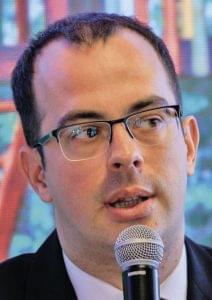
Márk Maczelka
head of communications
SPAR
Márk Maczelka, head of communications at SPAR told that bio roll bags aren’t really popular among customers, mainly because they have to pay for them. SPAR customers can buy goods without packaging, bring their own packaging, and purchase multi-use bags and bio roll bags in-store.
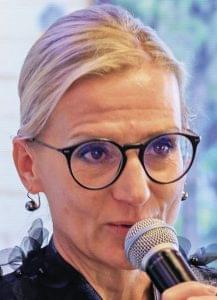
Bernadett Strasser-Kátai
owner-MD
Real Nature
Bernadett Strasser-Kátai, owner and CEO of Real Nature revealed that their factories and the head office are using renewable energy, and this can prove to be life-saving in the present situation. Today 80% of the energy they use comes from their own sources.
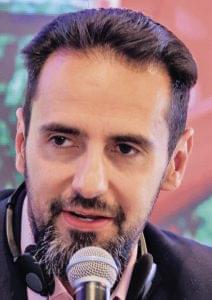
Gabriel Makki
VP-commercial officer
Procter&Gamble
Gabriel Makki, vice president – commercial officer at P&G in Central Europe called attention to that fact that with some of P&G’s operations, 60% of the carbon footprint comes from how consumers are using the products. This is where education and innovations can play a key role.
Home delivery
After the lunch break, the programme continued in the afternoon with a market overview and future scenarios in e-commerce, logistics and the full supply chain.

Tünde Turcsán
FMCG-director
GfK
Tünde Turcsán, FMCG director of GfK gave a presentation titled “Going against the PRICE flow”. She analysed the influence of current economic events on consumers. Research results indicate: in the last few months price became the number one factor in the FMCG product choices of household.
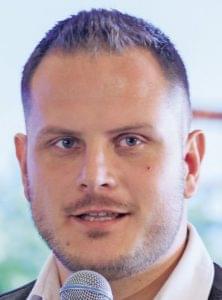
Norbert Madar
lead consultant
GKID Research & Consulting
Norbert Madar, lead consultant of GKID Research&Consulting also brought a presentation, titled “Big picture – the state of play in Hungary’s online FMCG market” (you can read the summary of this on page 36-37 in Issue 10/2022 of our magazine).
The afternoon’s first roundtable discussion put e-commerce in the spotlight.
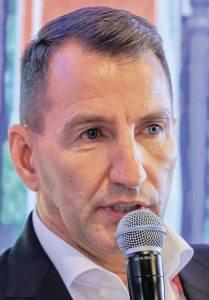
Tibor Székács
CEO-co-founder
Avokado
Tibor Székács, CEO and co-founder of Avokado spoke about how they are building an e-commerce platform, where retailers with physical stores are present, and Avokado does the shopping in their shops for the customers.

Attila Vig
co-owner
Kifli.hu
Attila Vig, co-owner of Kifli.hu analysed what makes his company successful, and mentioned the fact that they look at everything from the customer’s perspective. They have a dark store type business model. Kifli.hu also witnesses the expansion of private label products, and would like to have more of these in their own product selection.

László Arany
general manager-quick commerce and managing director
Foodpanda
László Arany, general manager – quick commerce and managing director of Foodpanda said: one of their biggest strengths is quickness, as the company’s average delivery time is 30 minutes. On the shelves, they don’t just group products based on category anymore, but also according to their popularity and other characteristics, speeding up the collection process.

István Kolbert
head of marketing
Boxy
With his presentation, István Kolbert, head of marketing at Boxy gave an insight into how to preserve well-working distributor relationships as manufacturers and wholesalers, in order to reach consumers successfully. He introduced direct-to-consumer (DTC) selling and spoke about its worldwide conquest.
Road, sea, air
For the second roundtable discussion of the afternoon, the logistics sector stepped on the stage and its representatives discussed the most import issues of the market.

Sándor Bátki
deputy managing director
Trans-Sped
Sándor Bátki, deputy of the managing director at Trans-Sped highlighted the sharp rise in container transport from the Far East, which has only started to tone down recently. He emphasised that customers and logistics service providers need to think together. As for air and sea transport, Mr Bátki opined that they need to adapt to market changes in these areas.
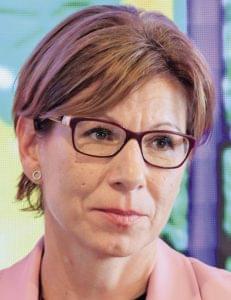
Nikoletta Kiss
owner-MD
Palmsped
Nikoletta Kiss, owner and managing director of Palmsped revealed that they are basically spending their days with solving problems. She reckons that the company is in a lucky situation, because their main playing field is the international market.

László Rónai-Horst
CEO
Mercarius
László Rónai-Horst, CEO of Mercarius recalled that back in April-May everybody wanted to buy a car. Back then often there weren’t enough available models, so the number of pre-orders increased, but from August customers started cancelling their orders.
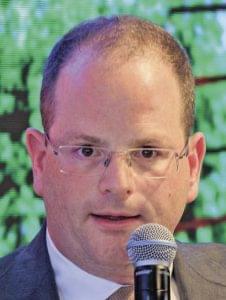
Dániel Jellinek
owner-CEO
INDOTEK Group
Wednesday ended with an exclusive interview: Szilvia Krizsó had an exciting one-hour conversation with Dániel Jellinek, owner and CEO of INDOTEK Group. He talked about investments, present and future – and a little bit about his private life.
In the evening participants could relax at a BBQ dinner, and had a good time at the R-GO concert, courtesy of Rossmann. //

The evening ended with a nostalgic R-GO concert courtesy of Rossmann
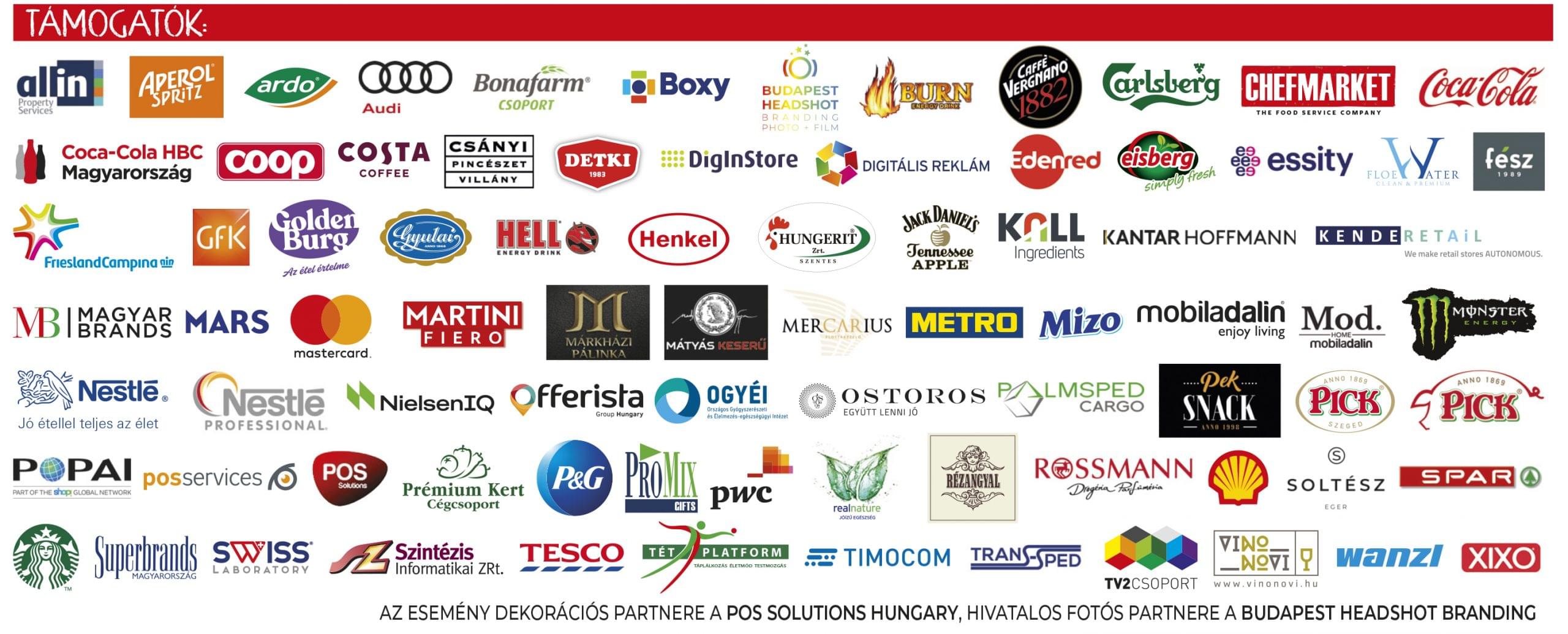
This article is available for reading in Trade magazin 2022/11
Related news
Auchan offers its regular customers extra shopping opportunities after closing
Auchan is offering a special shopping opportunity to its regular…
Read more >Auchan also entered the Dubai chocolate competition
As the Christmas season approaches, not only is there a…
Read more >AM: the Szupermenta product test program provides additional information for purchase
The National Food Chain Safety Office (Nébih) Szupermenta product test…
Read more >Related news
This year, Trade magazine is asking its readers for their opinions on Christmas TV commercials! Vote for yourself!
The audience voting takes place between December 12 and 19,…
Read more >FRUIT LOGISTICA 2025: The exhibition awaits visitors with numerous innovations
Representatives of the international fruit and vegetable trade will meet…
Read more >EuroCIS 2025: Serious interest in the retail technology trade fair
Amazon and TikTok recently signed an agreement that will allow…
Read more >

